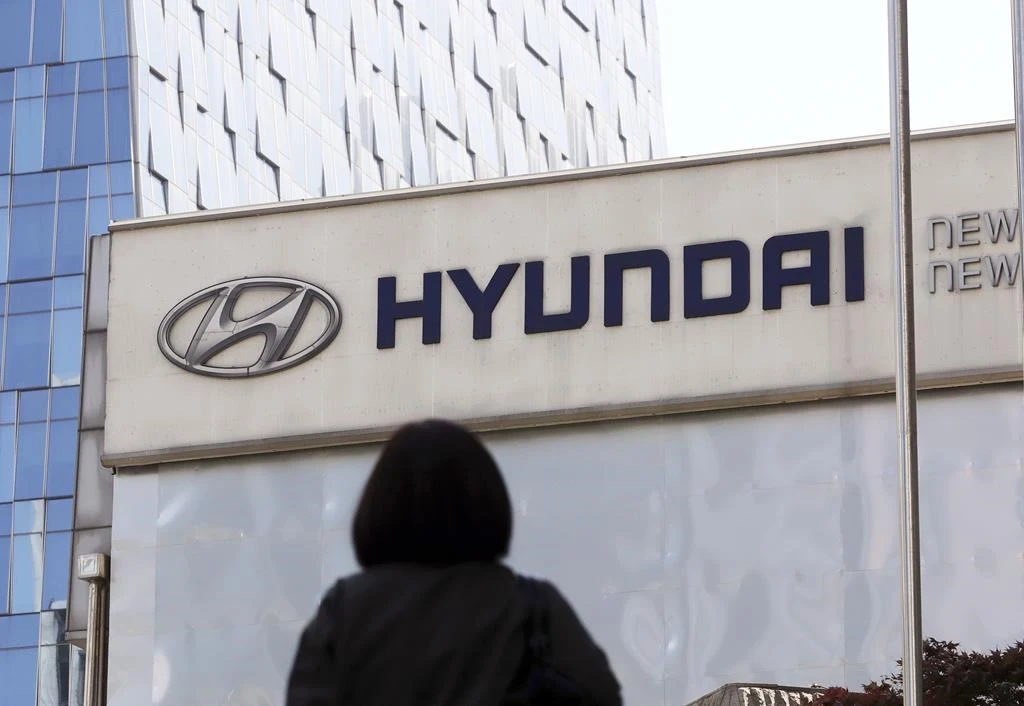Hyundai Class Action Lawsuit Canada, Latest Updates, Settlement Details & How to Claim Your Compensation
Canadian Hyundai owners have been at the center of multiple high-profile class action lawsuits that have resulted in significant settlements worth millions of dollars. The settlement reportedly ends five class action lawsuits lodged against the carmaker over allegations it ignored and even denied repairs to certain vehicles with engine defects that led to car fires.
If you own or lease a Hyundai vehicle in Canada, you may be entitled to substantial compensation under multiple ongoing settlement agreements. This comprehensive guide covers everything Canadian consumers need to know about the latest Hyundai class action lawsuits, settlement amounts, and how to claim benefits.
Table of Contents
Current Hyundai Class Action Lawsuits in Canada
1. Engine Defect Settlement – The Primary Case
The most significant Hyundai class action lawsuit in Canada centers around engine defects affecting thousands of vehicles. Owners and lessees of certain 2011 through 2019 model-year Hyundai vehicles may be able to take advantage of benefits in an engine defect class action settlement.
Key Details:
- Settlement Status: Approved and active
- Affected Years: 2011-2019 model years
- Primary Issues: Engine seizure, stalling, engine failure, and potential engine fires
- Legal Basis: Allegations that Hyundai denied legitimate warranty repairs
Related lawsuit: Rusty Moore Lawsuit Shocks Minnesota After “Unjust” DWI Arrest Leads to Federal Legal Case

2. Vehicle Theft Class Action – Immobilizer Defect
A separate but equally important lawsuit addresses vehicle theft issues. If you purchased or leased one of the Hyundai or Kia vehicles below that was manufactured without an engine immobilizer, you might benefit from a class action settlement.
Settlement Highlights:
- $3,375 direct deposit for qualified customers
- Total Settlement Value: $200 million
- Issue: Vehicles manufactured without engine immobilizers, making them vulnerable to theft
Eligible Hyundai Models and Years
Engine Defect Settlement Coverage
The following Hyundai models are covered under the engine defect class action settlement:
Affected Vehicles Include:
- Gamma 1.6L GDI Engine Models
- Nu 2.0L GDI Engine Models
- Theta II 2.4L MPI Engine Models
- Model years spanning 2011-2019
Theft Settlement Coverage
Hyundai models manufactured without engine immobilizers are eligible for the theft-related settlement benefits.
How Much Compensation Can You Receive?
Direct Payment Options
This settlement represents Kia and Hyundai’s attempt to compensate affected owners for the stress, damages, and increased insurance premiums resulting from this issue. To qualify for the $3,375 direct deposit, customers must meet specific eligibility criteria.
Compensation Breakdown:
- Direct Payment: Up to $3,375 per qualified vehicle
- Warranty Extensions: Extended coverage for engine-related repairs
- Reimbursement: Out-of-pocket repair costs for covered issues
- Insurance Premium Relief: Compensation for increased insurance costs
Additional Benefits
Beyond direct monetary compensation, the settlements provide:
- Extended warranty coverage
- Free diagnostic testing
- Software updates and safety improvements
- Reimbursement for alternative transportation costs
Who Qualifies as a Settlement Class Member?
You are a Settlement Class Member if you are a person (including an individual or entity) who purchased or leased a Settlement Class Vehicle in Canada.
Eligibility Requirements:
- Vehicle Purchase/Lease: Must have purchased or leased an eligible Hyundai model in Canada
- Ownership Period: Owned/leased the vehicle during specified time periods
- Documentation: Ability to provide proof of ownership or lease agreement
- Geographic Requirement: Vehicle must have been purchased or leased in Canada
Related article: Hyundai And Kia Lawsuit, Multistate Immobilizer Settlement, Who Qualifies & How to Claim Up to $4,500

How to File Your Claim
Step 1: Determine Eligibility
Before filing a claim, verify that your Hyundai model and year are covered under the relevant settlement agreement.
Step 2: Gather Required Documentation
Essential Documents Include:
- Original purchase or lease agreement
- Vehicle registration documents
- Maintenance and repair records
- Insurance documentation (for theft-related claims)
- Proof of increased insurance premiums
Step 3: Submit Your Claim
Claim Submission Methods:
- Online through official settlement websites
- Mail-in paper forms
- Through authorized legal representatives
Important Deadlines
November 4, 2023* KSDS Installation Deadline to Qualify for Certain Settlement Claims · July 8, 2024* Deadline to Submit a Claim for Most Benefits
Note: Settlement deadlines may be extended, so check official settlement websites regularly for updates.
Legal Background and Timeline
Origins of the Lawsuit
A group of vehicle owners is going after two major automakers in a proposed class-action lawsuit, claiming they were knowingly sold defective vehicles then left to pay for losses and repairs out of pocket when the engines failed or caught fire.
The legal action began when Canadian consumers discovered widespread engine problems affecting multiple Hyundai model years.
Settlement Negotiations
The automaker denies these allegations but has agreed to the settlement along with the plaintiffs to avoid the cost and risk of further litigation.
This voluntary settlement approach allowed for faster resolution and immediate consumer relief.
Court Approval Status
The Settlement was approved by the Court and Judgment was entered on June 10, 2021. Payments for approved claims will be mailed 30 days after the Effective Date which occurs when all appeals are exhausted.
Impact on Canadian Consumers
Financial Relief
The settlements provide substantial financial relief to Canadian Hyundai owners who experienced:
- Unexpected engine failures
- Costly out-of-warranty repairs
- Increased insurance premiums due to theft vulnerability
- Loss of vehicle value
Consumer Protection Precedent
These settlements establish important precedents for automotive consumer protection in Canada, demonstrating that manufacturers can be held accountable for widespread vehicle defects.
Expert Legal Analysis
Significance of the Settlement
Legal experts view these settlements as landmark cases in Canadian automotive law, setting important precedents for:
- Consumer rights in automotive defect cases
- Manufacturer responsibility for design flaws
- Class action effectiveness in securing consumer compensation
Long-term Implications
The Hyundai settlements may influence how other automotive manufacturers approach potential defect issues and consumer complaints in Canada.
Frequently Asked Questions (FAQ)
Q: How long do I have to file a claim?
A: Claim deadlines vary by settlement type. Engine defect claims had deadlines in 2023-2024, while theft-related claims may have different timelines. Check the official settlement websites for current deadlines.
Q: Can I still file a claim if I no longer own my Hyundai?
A: Yes, former owners who owned eligible vehicles during specified periods may still qualify for certain settlement benefits.
Q: What if I already paid for engine repairs?
A: The settlement includes reimbursement provisions for qualifying out-of-pocket repair expenses related to covered defects.
Q: What are the exact settlement amounts and per-person payments?
A: The most recent theft settlement totals more than $200 million, with individual payments up to $3,375 per qualified vehicle. Additional settlements include a $62.1 million airbag defect settlement (2025) and historical settlements totaling $70 million for fuel efficiency issues.
Q: Is this information current and up-to-date?
A: Yes, this article includes the latest updates as of 2024-2025, including the final court approval granted with a March 31, 2025 claims deadline. The $200 million theft settlement represents the most recent and largest settlement affecting Canadian consumers.
Q: Do I need a lawyer to file a claim?
A: While not required, consulting with legal counsel can help ensure you maximize your settlement benefits and meet all requirements.
Official Settlement Resources
Key Legal Firms Handling Cases
McKenzie Lake Lawyers LLP – McKenzie Lake Lawyers LLP, along with other firms, are handling multiple Hyundai/Kia vehicle defect class actions.
JSS Barristers – JSS Barristers has filed a proposed class action lawsuit in the Alberta Court of Queen’s Bench against Hyundai.
Official Settlement Websites
- Hyundai Engine Settlement: hyundaithetaenginesettlement.com
- Hyundai E2 Class Action: hma-e2.autosolutionteam.com
- Kia Engine Settlement: kiaengineclasssettlement.com
Next Steps for Hyundai Owners
Immediate Actions
- Verify Eligibility: Check if your vehicle model and year are covered
- Gather Documentation: Collect all relevant vehicle and repair records
- Submit Claims Promptly: Don’t wait – submit all eligible claims as soon as possible
- Monitor Updates: Regularly check official settlement websites for updates
Professional Legal Assistance
Consider consulting with experienced class action lawyers who can:
- Review your specific case circumstances
- Ensure you’re claiming all eligible benefits
- Help navigate complex settlement requirements
- Maximize your potential compensation
Conclusion
The Hyundai class action lawsuits in Canada represent a significant victory for consumer rights, providing substantial compensation to affected vehicle owners. With settlements totaling hundreds of millions of dollars and individual payments reaching $3,375, Canadian Hyundai owners have substantial opportunities for financial recovery.
Whether your vehicle experienced engine problems, theft vulnerability, or other covered defects, acting quickly to understand and claim your settlement benefits is crucial. The legal landscape continues to evolve, and staying informed about your rights and options ensures you receive the full compensation you deserve.
Important: Settlement terms, deadlines, and eligibility requirements can change. Always consult official settlement websites and consider professional legal advice to ensure you’re making informed decisions about your specific situation.
This article provides general information about Hyundai class action lawsuits in Canada and should not be considered legal advice. Individual circumstances vary, and readers should consult with qualified legal professionals for specific guidance regarding their situations.
About the Author

Sarah Klein, JD, is a licensed attorney and legal content strategist with over 12 years of experience across civil, criminal, family, and regulatory law. At All About Lawyer, she covers a wide range of legal topics — from high-profile lawsuits and courtroom stories to state traffic laws and everyday legal questions — all with a focus on accuracy, clarity, and public understanding.
Her writing blends real legal insight with plain-English explanations, helping readers stay informed and legally aware.
Read more about Sarah

i am a second owner of a 2017 Hyundai Santa Fe sport, in which I purchased in May of 2024.
In just several months since purchasing the Hyundai Santa Fe sport, it has stalled out and misfired to the point where it was not able to drive.
I had to have the vehicle towed back to the dealership where I had purchased the vehicle, the spark plugs were dirty and gummed with dirt and oil residue.
I have also noticed the amount of oil the Hyundai has been consuming every 3 months.
I just had the Hyundai Santa Fe sport serviced, October 10, 2025 and told the adviser that the service before, I had informed the service adviser of the amount of oil the vehicle is consuming every 3 months.
I asked for a resolution, and he said I can have a engine combustion chamber cleaning for $900.00
I purchased a defective 2017 Hyundai Santa Fe sport not knowing the about the Theta II engine defects, if I would have known I would have never purchased the vehicle…resolution?